In this article on American doctrine, I delve into the entire geopolitical strategy and vision of the USA in depth.
This article is one of the four fundamental elements that I mention in my article on the New Cold War, which I strongly encourage you to read beforehand if you haven't already.
This article, in my humble opinion, is one of my most important articles of this year, because understanding American doctrine means understanding a huge part of the conflicts and issues in the world.
Most conflicts generally have this doctrine as an underlying principle and are directly or indirectly linked to the United States' desire to destabilize certain parts of the world in order to maintain its hegemony.
The two columns of American doctrine
The American doctrine has many elements, mastery of the seas, key zones, intelligence and espionage and many others, but the essence of the doctrine can be understood in two main points:
- All means are good to ensure American hegemony over the world (soft power, propaganda, intimidation, fake news, destabilization, corruption, sabotage, etc.).
- Eurasia is a geopolitical nightmare for the United States because it is a counter-model and its main competitor, which is why it must be either vassalized or neutralized.
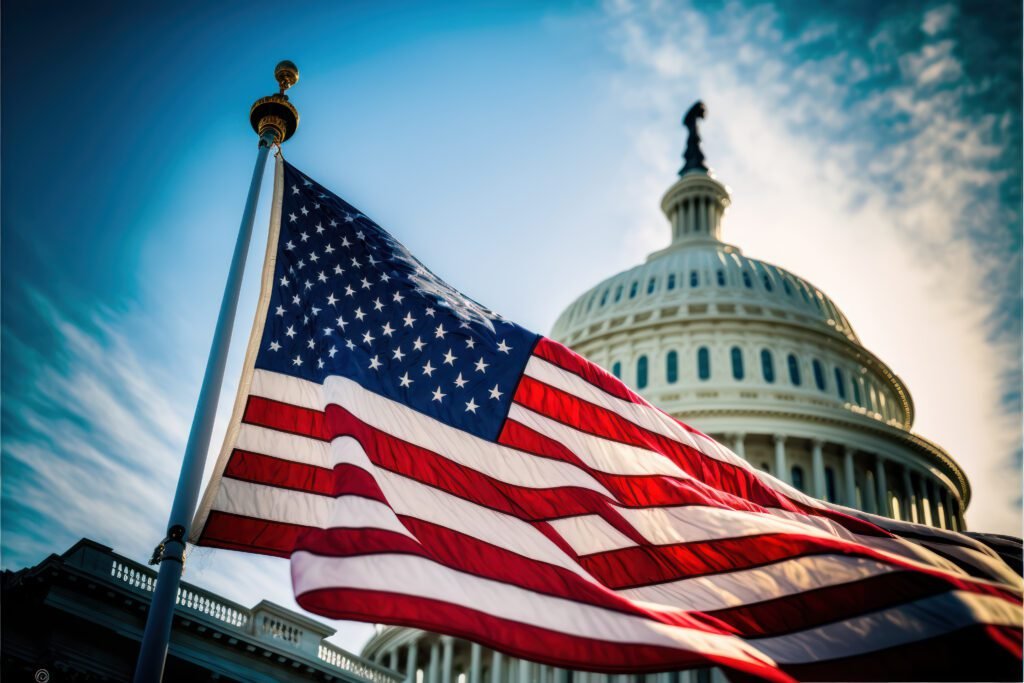
The two great names of American doctrine: George Friedman and Zbigniew Brzezinski
To understand American doctrine, we must look at the "master strategists" who have always dictated this doctrine to the American state.
Among the few "brains" behind the American strategy, we find two big names who have dictated about 80% of what makes up the American doctrine: George Friedman and Zbigniew Brzezinski.
We will explore each of these two strategists to learn more about the backbone of American strategy in the world.
George Friedman, the CIA's master thinker
To understand George Friedman, I can only cite the excellent article written by Jean-Claude Empereur on RevuePolitique.fr which sums up the character and his thinking in a clear manner.
The excerpt that interests us from his article:
" George Friedman, a renowned foresight specialist and president of Stratfor, a company dedicated to geostrategic analysis and economic intelligence, often referred to as the "CIA bis", is close to American leadership circles. He can thus be considered highly representative of the dominant geopolitical thinking in Washington, whether in the "visible" leadership circles or those of the "deep-state" and the military-industrial complex, whether Republican or Democrat. "
"We have known since Tocqueville that the confrontation between America and Russia is one of the many great myths of history.
For some, the inevitability of this confrontation was theorized as early as 1904 by Hartford Mackinder in his lecture at the Royal Geographical Society in London. This lecture, later reprinted in a single twelve-page article, still summarizes the direction of American policy today by highlighting the absolute opposition between an America based on complete mastery of the oceans and a Russia entrenched in the "world island," the heart of the Eurasian continental system and the "geographic pivot of history."
For Friedman, the rapprochement of the new Germany and eternal Russia, making inevitable the creation of a gigantic continental entity populated by more than seven hundred million inhabitants, with immense natural resources, unequalled strategic depth, in continuity and contiguity with China, India and the Muslim world, is unacceptable.
This rapprochement, if it were to be confirmed in the next twenty years, would constitute for the United States a veritable geopolitical nightmare as well as a major threat, calling into question a hegemony considered non-negotiable.
Under these conditions, everything, absolutely everything, must be done to prevent this from happening.
This is why Ukraine's integration into the European Union, or in fact into NATO, is a major issue and makes perfect sense. In this logic, the conflict must be fought to its conclusion in order to position NATO armies right up to Russia's borders, and this "for decades"...
Far beyond the simple containment of the Cold War, it is a strategy of pure and simple repression, or "roll back." This strategy thus surreptitiously brings the United States into Russia's "near abroad," placing de facto this peripheral zone, to which it is very attached for its security, under American control. The next step is to use Ukraine as a geostrategic battering ram, in line with what Zbigniew Brzezinski advocates in "The Grand Chessboard," to then dislocate the Russian Federation.
During a conference given at the Chicago Council for Global Affairs, George Friedman, on the occasion of the release of his book, did not hesitate to envisage the return of the Cold War or even the possibility of a preventive conflict with Russia.
"If we want to prevent a fleet from becoming a threat, we must prevent its construction before it is too late," he said.
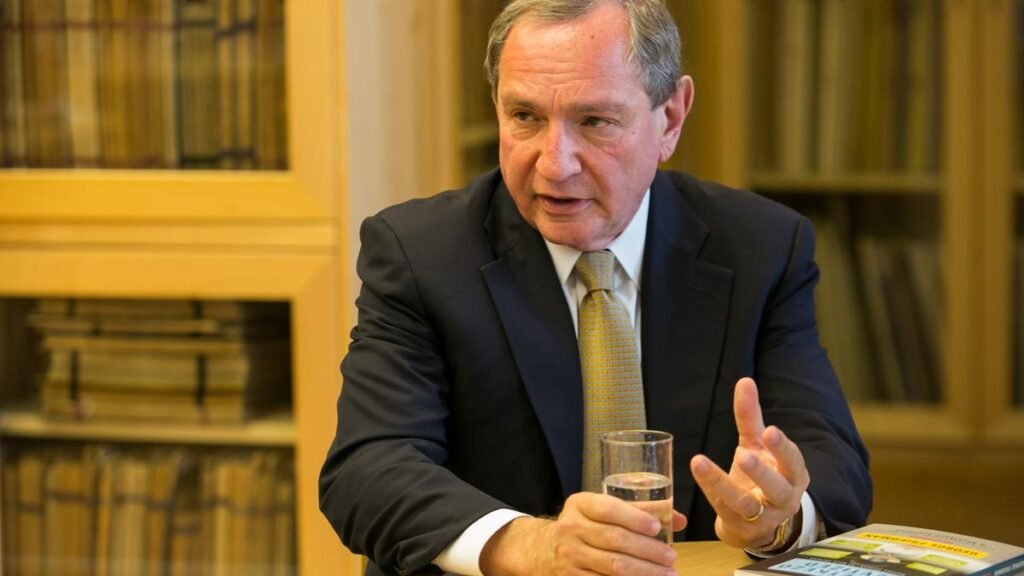
We should not be under any illusions, this analysis, shared by most of the ruling circles in Washington, who, let us recall, are often the sponsors of Stratfor, denies the European Union any possibility of political, economic or military independence.
Because of the supposed impossibility of European political leaders to control their latent conflicts, any desire for independence on their part is perceived as a risk and a permanent threat to the peace and security of the United States.
Friedman insists that the United States must continue to control the oceans and space, and he might add digital technology and big data, because this is the basis of its power.
Faced with the risks presented, according to him, by European irresponsibility and uncontrollability, and the double failure of the economic and military integration of Europe, two solutions are necessary: the strengthening and extension of NATO, the implementation of the Great Transatlantic Market, two instruments of vassalage of the Union. »
Zbigniew Brzezinski, the father of modern American doctrine
As for the second leading thinker of American geopolitical doctrine, I can only cite a passage from the book A Russian Spring by my friend Alexandre Latsa, which brilliantly and concisely analyzes this personality.
The extract that interests us from his book:
"In 1997, one of the key works on American geopolitics of the last two decades was published by Zbigniew Brzezinski, an American political scientist of Polish origin, former national security advisor to the President of the United States between 1977 and 1981.
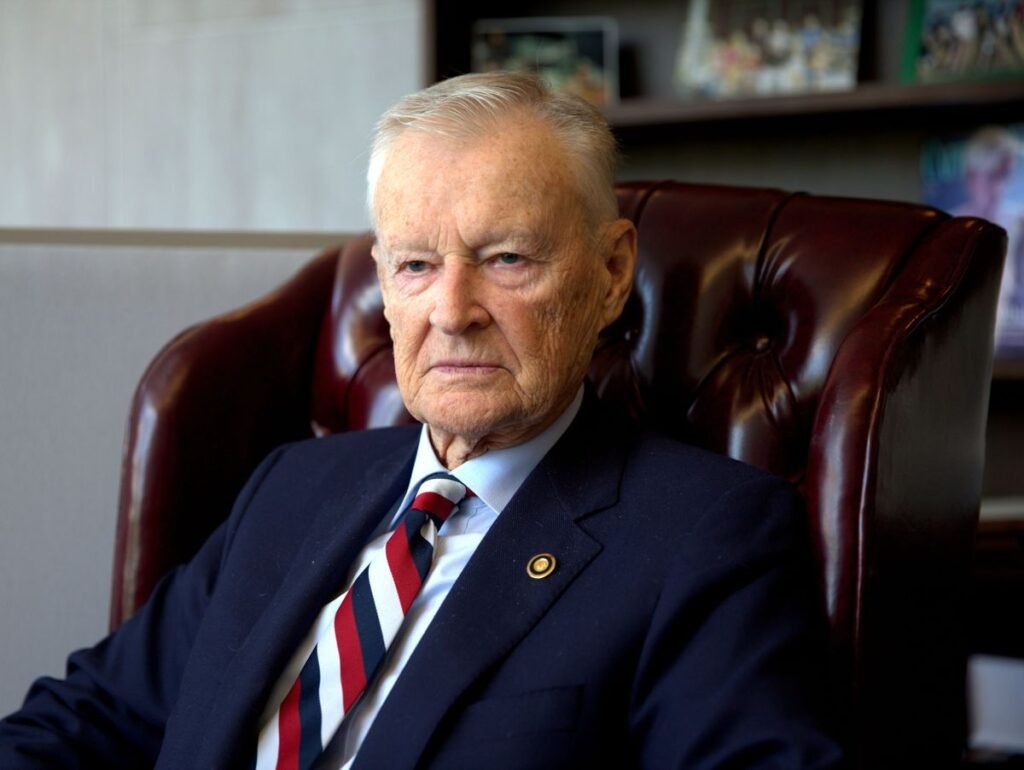
Zbigniew Brzezinski is, above all, one of the key figures in American strategic thinking. During the Afghan War, he played a significant role in assisting Afghan fighters against the Red Army, which began not after the invasion of Afghanistan in December 1979, but in July of that same year.
Zbigniew Brzezinski himself traveled to the Pakistani-Afghan border during the war, with the help and support of the powerful Pakistani intelligence services, to assure the mujahideen of American logistical support and remind them that God is with them.
During this filmed trip, he met the most famous of his fighters: Osama Bin Laden.
It was only in 1998, however, that he confided in an interview with Le Nouvel Observateur that "the CIA had entered Afghanistan before the Russians" and that he was proud to have "trapped the Russians in Afghanistan," this Eurasian Vietnam having been, according to him, the main factor in stopping the Soviet machine.
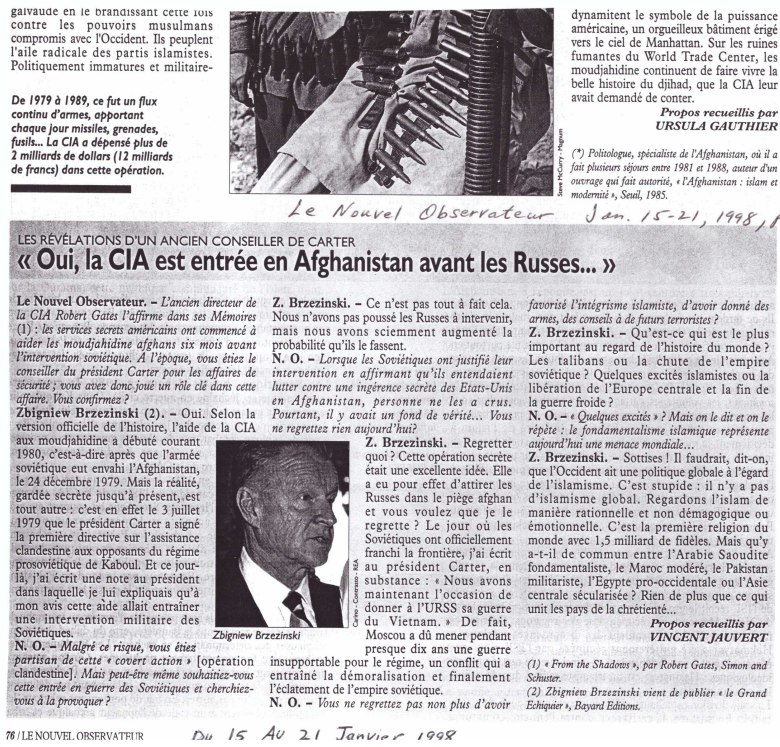
In his book, The Grand Chessboard, Zbigniew Brzezinski sets out America's strategic aims in Eurasia and the objectives that must be achieved to enable America to consolidate its position as a hyperpower.
He clearly advocates the integration of Russia into the Western system or at least its attachment to the periphery of this system.
He actually advocates a close union with Europe, which he describes as "America's democratic bridgehead" because "without Europe, America is still dominant, but not omnipotent," but also because "Europeans are more exposed to the possible risk that chauvinistic imperialism will once again drive Russian foreign policy."
We can therefore better understand the constant American obsession with extending NATO into Eastern Europe, in order to strengthen the American sphere of control and influence and not lose ground there in the face of a resurgent Russia, a scenario that is admittedly more than topical at the beginning of 2015.
The notion of "Europe, democratic bridgehead" will, moreover, be strangely taken up by Barack Obama during the ceremonies of May 9, 2014 in Normandy.
Zbigniew Brzezinski, however, does not limit his ambitions for America to the western coast of Eurasia. In The Grand Chessboard he writes:
But in the meantime, it is imperative that no Eurasian challenger emerges, capable of dominating Eurasia and thus also of challenging America.(...)
America's global primacy is directly dependent on how long and how effectively its preponderance on the Eurasian continent is sustained.
(...) About 75 percent of the world's people live in Eurasia, and most of the world's physical wealth is there as well, both in its enterprises and underneath its soil.
Eurasia accounts for about 60 percent of the world's GNP and about three fourths of the world's known energy resources.
Zbigniew Brzezinski, The Grand Chessboard
We understand better why, still in this work, the strategist Brzezinski clearly envisages, in order to leave no chance for any competitor to emerge, simply dismembering Russia as a State.
As he himself explains:
A more decentralized Russia would be less susceptible to imperial mobilization. A loosely confederated Russia-- composed of a European Russia, a Siberian Republic, and a Far Eastern Republic-- would also find it easier to cultivate closer economic relations with Europe.
However, during the second decade of the 2000s, Zbigniew Brzezinski returned to these radical positions towards the Russian Federation, refocusing the strategy necessary for America, according to him, to combat the rise of Islamic terrorism.
Despite this new, more cooperative reading grid with the major emerging countries, the damage will be done.
An Anglo-Saxon strategic school will emerge, summed up for example by the very sincere testimony of George Friedman, president of the economic intelligence company Stratfor, who in February 2015 announced American aims in Eurasia to destabilize the emergence of new poles of influence that could undermine American leadership, first and foremost that of the new Russia which was reconstituting a regional zone of influence in Eurasia and towards Europe. »
An American doctrine of absolute hegemony
You have understood, now that you know the two main brains of the American doctrine, you know that the USA has a hegemonic and undivided vision of the world.
From this doctrine arise many conflicts, whether in the Middle East, Asia, Europe and elsewhere.
The US sometimes acts directly, by sending its own troops, and sometimes indirectly, by using satellite or puppet countries.
Many conflicts are sometimes even caused by small groups financed and armed by the United States who then turn against them.
Not to mention the fact that the US always thinks "America First" to the detriment of its own allies if necessary, and that it does not hesitate to sabotage and sink if necessary.
As another American strategist who also had a strong influence on American doctrine said:
It may be dangerous to be America's enemy, but to be America's friend is fatal.
Henry Kissinger
A new multipolar world that wants to do without the United States
In the last thirty years, with the population explosion in certain countries, relocation, globalization and the democratization of high technologies coupled with many other factors, we have witnessed a profound restructuring of the world.
This new world we are witnessing is a multipolar world. I will discuss this point in depth in another dedicated article.
Faced with this new multipolar world, with many powers that no longer allow themselves to be pushed around and have the capacity to hinder or even threaten the USA, American power is losing ground and American doctrine no longer works.
The geopolitical cards are being reshuffled
It is thanks to this new configuration that from 2022, after 8 years of bombing the Russian populations of Donbass, Russia, strong in its new power and its major alliances, took the decision to launch its preventive war in Ukraine, to hinder and stop the advance of its encirclement desired by the United States.
Overconfident, the American doctrine rushed to sanction and economically encircle Russia, even if it meant ensuring the separation of Europe and Russia by sabotaging the Nord Stream pipeline.
What the Americans did not foresee is that in a span of the last 30 years, the world has changed and the world no longer really needs the United States.
Better still, most major powers want to do without America and build a healthy, multipolar world without hegemony.
This haste and obsession with Eurasian and Russian isolation will have cost the USA the rise of a new Iron Curtain.
A new Iron Curtain that will leave the western side on the doorstep...
Because the economic, demographic, political and technological future of the world, I'm afraid, lies on the other side of the wall, where the majority of the world's population and resources are and where the free market is not overwhelmed by ideology.
But the United States might be now too narrow-minded to realize it and start to reverse its mistakes.
This doctrine, too aggressive and arrogant, which is tumbling down like a house of cards in the face of Russia's economic resilience and the international and cooperative trade of the BRICS, which they can no longer curb, forces the USA to initiate a process of headlong rush, from which they are not ready to emerge.



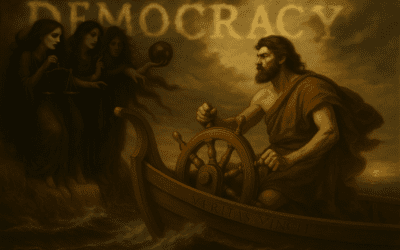



0 Comments